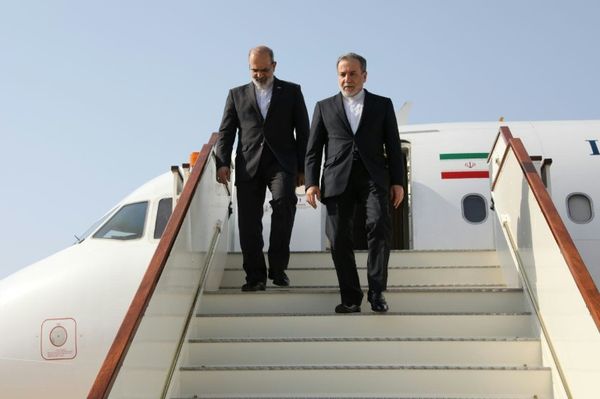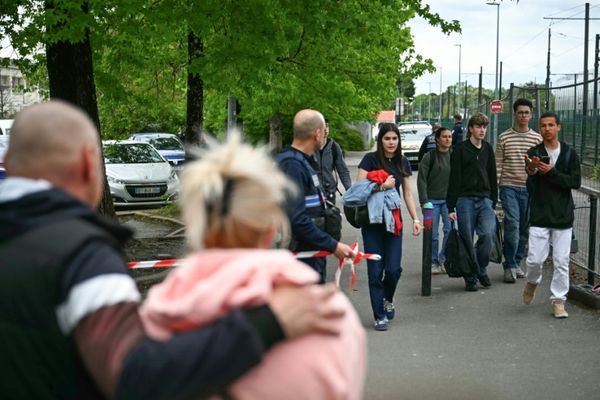Israel’s parliament has passed a law banning the UN Relief and Works Agency from operating in the country as well as occupied Palestinian territories, citing alleged links of some staff members to the 7 October Hamas attack.
The legislation, which could lead to the closure of UNRWA’s East Jerusalem office and disrupt aid into Gaza, has sparked strong international condemnation, including from the US, UK, Canada, and Australia.
Philippe Lazzarini, the UN agency’s commissioner general, condemned the law and warned that it will worsen the humanitarian crisis in Gaza, where conditions have been dire for over a year.
“These bills will only deepen the suffering of Palestinians, especially in Gaza where people have been going through more than a year of sheer hell,” he said in a statement, adding that the Israeli law “sets a dangerous precedent”.
Gaza’s 2.3 million people rely almost entirely on humanitarian aid for survival, especially now that over 90 per cent has been displaced by the Israeli bombardment of the territory.
Hundreds of thousands of Gazans are sheltering in makeshift tent camps and schools, primarily managed by UNRWA, where observers report widespread hunger.
UNRWA has been instrumental in coordinating assistance for displaced Palestinians through the ongoing Israeli war on Gaza which has killed 43,000 Palestinian deaths, according to Gaza’s health ministry.
By barring the agency from operating in Israeli territory and limiting its interactions with government agencies, the legislation threatens to cripple the essential services that UNRWA provides.
The vote by the Israeli Parliament against @UNRWA is unprecedented. It opposes the @UN Charter and violates the State of Israel’s obligations under international law.
— UNRWA (@UNRWA) October 28, 2024
Failing to push back against these bills will weaken our common multilateral mechanism.
This should be a… https://t.co/kx5JJOVEGe
UNRWA may find it harder now to bring in international staff and coordinate aid efforts, exacerbating the dire humanitarian conditions in Gaza.
US State Department spokesperson Matthew Miller said secretary of state Antony Blinken and secretary of defence Lloyd J Austin cautioned Israel in a letter that the “passage of this legislation could have implications under US law”.
Most provisions of the new law will not take effect for three months and their full legal implications are not yet entirely clear.
If implemented, the laws adopted today by the Knesset of Israel would likely prevent @UNRWA from continuing its essential work in the Occupied Palestinian Territory, with devastating consequences for Palestine refugees.
— António Guterres (@antonioguterres) October 29, 2024
I call on Israel to act consistently with its obligations…
The US letter warned of possible restrictions on weapons sales unless Israel implemented measures to enhance the humanitarian situation in Gaza.
“We are deeply concerned by this proposed legislation,” Mr Miller told reporters on Monday.
“They really play an irreplaceable role right now in Gaza, where they are on the front lines getting humanitarian assistance to the people who need it. We continue to urge the government of Israel to pause the implementation of this legislation. We urge them not to pass it at all. We will consider next steps based on what happens in the days ahead.”
Full solidarity with @UNRWA and its brave teams whose work is essential to millions of Palestinians.
— Joyce Msuya (@JoyceMsuya) October 28, 2024
This decision is dangerous and outrageous.
There is no alternative to UNRWA. https://t.co/YmPSn45nzs
Since January, Israel has intensified efforts to block UNRWA, alleging that 12 of its 13,000 employees in Gaza were involved in the 7 October Hamas attack and suggesting that many more were linked to Palestinian militant groups. It has provided little evidence to back up these claims.
In August, UN investigators exonerated 10 UNRWA staff members while nine employees were terminated after an internal investigation found they may have been involved in the Hamas-led attack against Israel.
An independent review in April found that UNRWA had a stronger commitment to neutrality compared to other aid organisations and UN agencies.
Israeli attacks on Gaza have killed hundreds of UNRWA workers so far, making this the deadliest conflict ever for UN personnel.
UNRWA media adviser Adnan Abu Hasna warned that Israel’s decision to ban the agency could lead to a complete collapse of humanitarian efforts in Gaza.
Speaking to Al Jazeera, Mr Abu Hasna called the move an “unprecedented” escalation.
Joyce Msuya, the acting head of the UN Office for the Coordination of Humanitarian Affairs, voiced strong support for UNRWA and said the decision was “dangerous and outrageous”.
“There is no alternative to UNRWA,” Ms Msuya said.
Sally Abi Khalil, Oxfam regional director in the Middle East and North Africa, said in a statement: “Israel has bombed Palestinians to death, maimed them, starved them, and is now ridding them of their biggest lifeline of aid. Piece by piece, Israel is systemically dismantling Gaza as a land that is autonomous and liveable for Palestinians. Its banning of UNRWA today is condemnable and another step in this crime.
“The decision will further undermine the ability of the international community to provide sufficient humanitarian aid and to save lives in any safe, independent and impartial way.”
UNRWA was established by the UN General Assembly in December 1949 to carry out “direct relief and works programmes” for Palestine refugees. It began its operations on 1 May 1950.
Hamas’s attack on Israel killed 1,200 people and more than 250 hostages were captured and taken into Gaza, according to Israeli tallies. The death toll from Israel’s retaliatory air and ground onslaught in Gaza has exceeded 43,000, the Hamas-run Gaza health ministry said.







